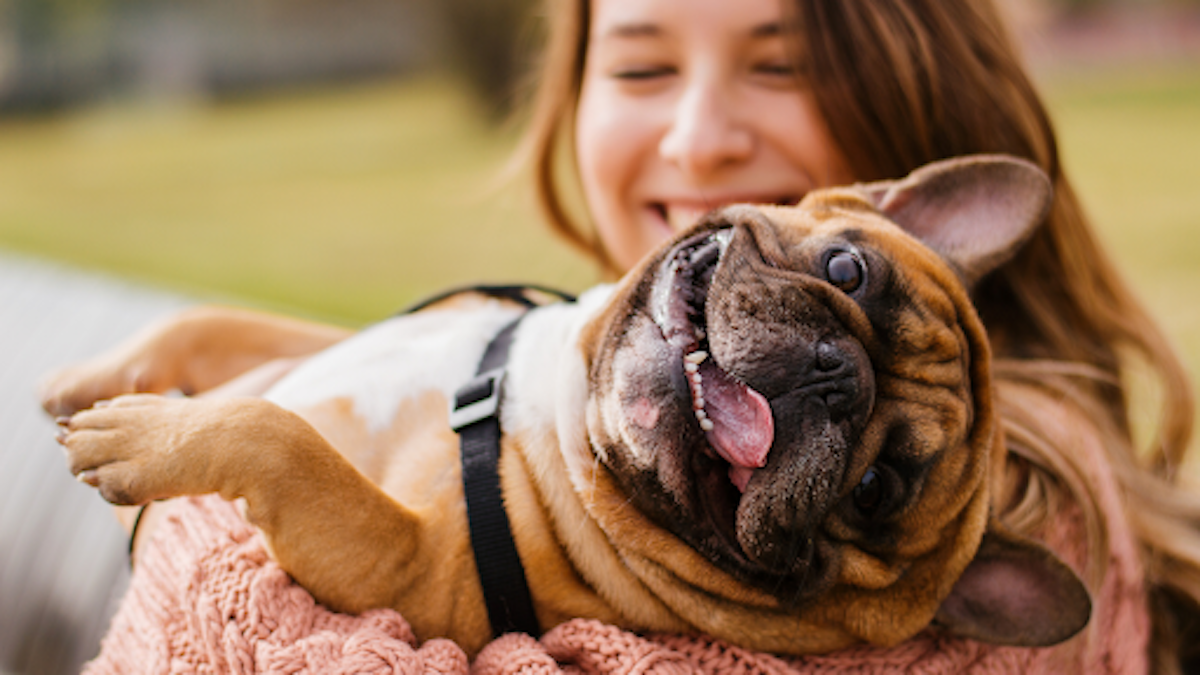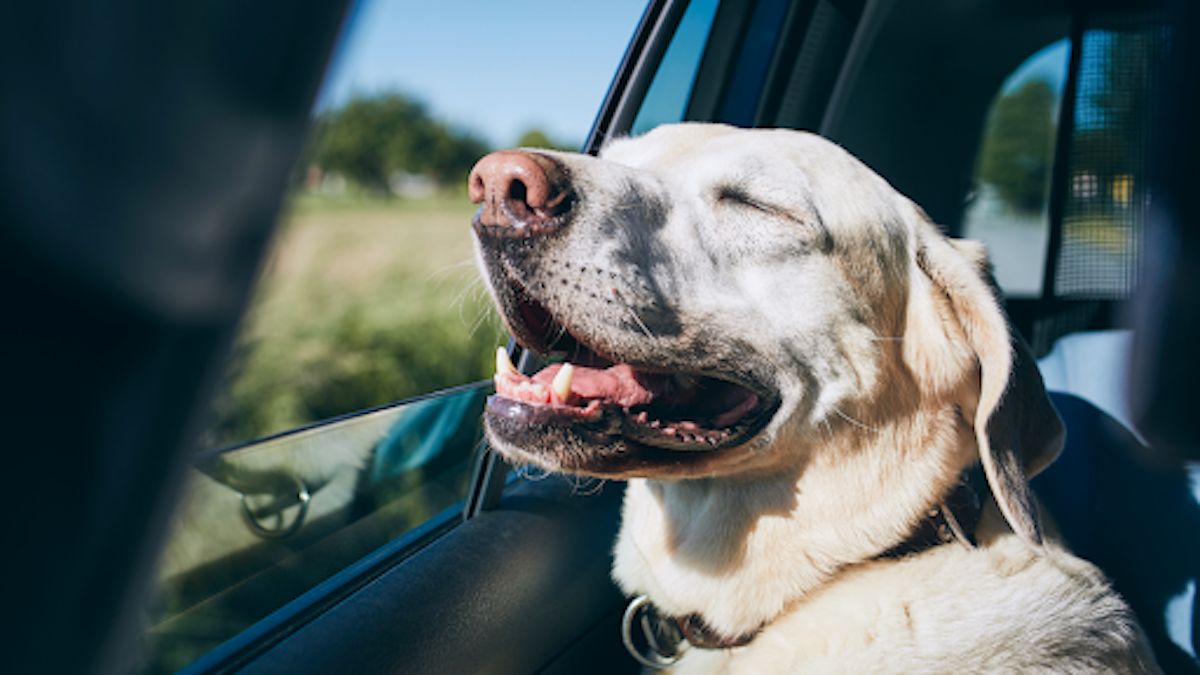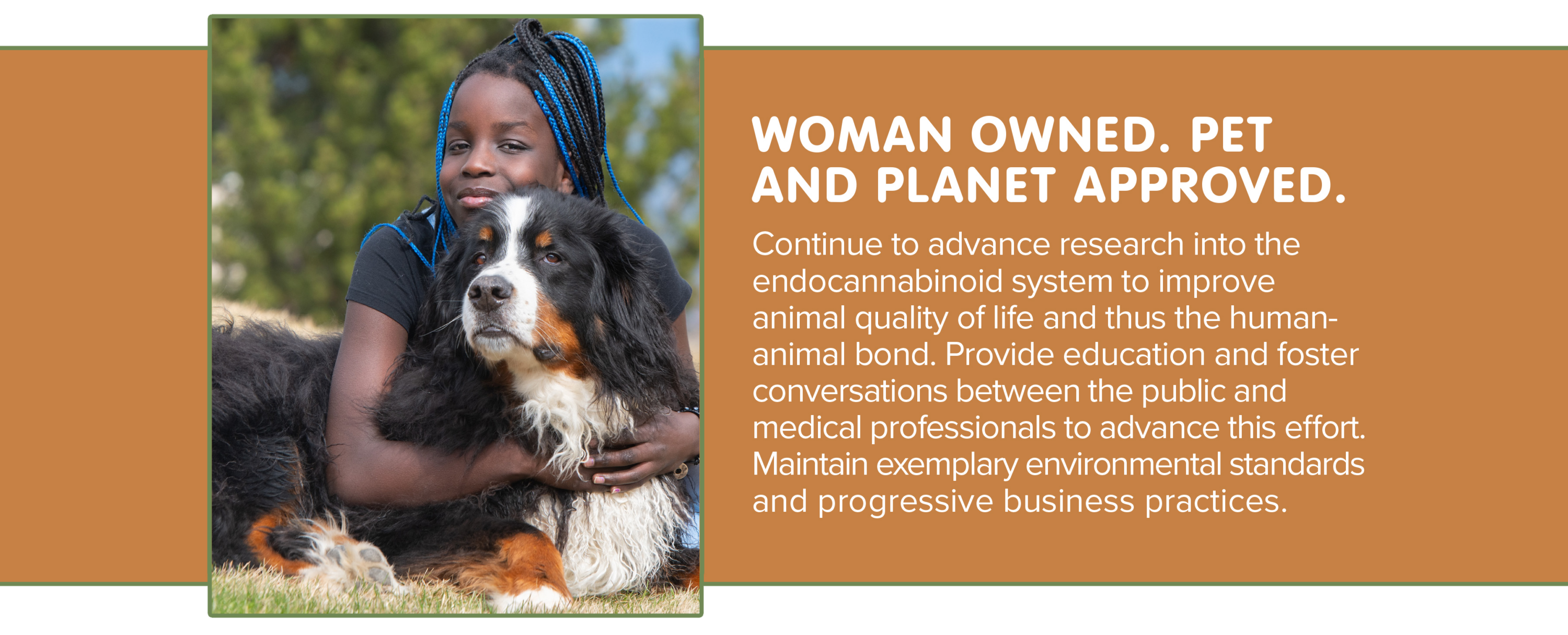Can I Give My Dog CBD Tincture?
With all the different types of CBD supplements for pets that are available right at your fingertips, it can be confusing to know whether or not you are making the proper decision for your dog.
For example, many pet parents wonder if it is safe to give their pets human CBD. We’ve covered this topic at length (and if you’re wondering, the short answer is: we don’t recommend it). Others get overwhelmed by the variety of product options available: CBD dog treats, tinctures, oil, capsules, soft chews, and so on.
The last thing you want to do is spend tons of money on “trial and error” when you can easily get more guidance and access to education so you can help your dog quickly. That’s why we’re breaking down everything you need to know about the differences between all the CBD products for dogs out there.
What are the different types of CBD supplements for dogs?
Knowing what forms of CBD to give to your four-legged friend is essential to creating the best plan of care for him or her. This includes understanding the different types of CBD supplements for dogs, such as tinctures vs. oils vs. capsules and other variations.
Let’s start by understanding the scientific definitions of each of these forms of CBD.
Extract
An extract is a specific preparation of cannabis obtained by removing active compounds, often with solvents. In this process, all or nearly all of the solvent is evaporated.
In the CBD and cannabis industry, we see extracts processed using tinctures, hydrocarbons, ice, and CO2. Each of these types of extracts produce different results and can even be combined.
For instance, CO2 extracts preserve the largest array of compounds in the cannabis plant, including many natural forms like the acids of CBD, THC & CBG, and non-cannabinoids like chlorophyll. An alcohol wash can then be used as a solvent to remove the chlorophyll (if desired). The alcohol is finally removed via rotary evaporator.
These types of extracts are used to make dilutions, such as tinctures, oils, capsules, and treats, as well as isolates that may or may not be diluted (though always are in pet-specific formulations). In other words, unless raw cannabis plant material is used, all products available for human or non-human use are extracts of some type.
Tincture
A tincture is an ethanol-based, or alcohol-based, extract that contains plant matter. Tinctures are commonly mixed with water in a 50/50 ratio and are therefore water-soluble. This means, tinctures cannot be diluted with oils.
There are pros and cons to using CBD tinctures for your dog:
| PROS | CONS |
|
|
*Cat noses are known to be fourteen times more sensitive than humans’ while dog noses can be as much as 10,000 to 100,000 times more sensitive!
Isolate
An isolate is a highly concentrated, nearly pure (generally >95% potency) single compound, often in powder or crystalline form. These are almost never found in pet products unless diluted with another compound.
Oil
An oil is a non-tincture extract which may be diluted with another oil. An example might be a CO2 extract mixed with hemp seed oil.
Capsule
A capsule is an extract or isolate (the latter is never found in pet products) mixed with other solids or a (tincture or oil-based) liquid solution placed inside a capsule. An example might be diluted CO2 extract and powdered hemp protein flour.
Note that CBD dog treats or soft-chews are the same as a capsule, but specifically formulated for chewing, much like edible brownies for humans.
What is the difference between CBD tinctures and oils?
The definitions of the different types of CBD supplements for dogs help understand the general composition of how these products are formulated. As you can see, many of these product types overlap, so distinguishing between two given formulations can give you more information to help care for your dog.
The greatest confusion comes from the difference between CBD oils and CBD tinctures.
We often see the two terms used interchangeably, but the reality is that they are very different. In fact, they are mutually exclusive by nature since CBD oils are fat-soluble, whereas CBD tinctures are water-soluble.
To get more specific, CBD oil is typically defined as a CBD isolate pulled from Cannabis sativa, ideally through CO2 extraction, and diffused into a carrier oil for better consumption. These carrier oils are usually natural, such as MCT oil, a coconut-based oil, and hemp seed oil.
In the consumer market, many manufacturers will substitute the alcohol with a carrier oil and add other ingredients, including natural flavorings, for better taste.
However, as in the definition, there are other ways to formulate a CBD oil that are not just isolates with a carrier or diluent oil.
With CBD tinctures, the process involves using high-proof alcohol as a solvent. This creation method allows the CBD molecules to infuse with the alcohol. Whether alcohol or oil-based, the infusion process leaves a liquid that can actually deliver CBD compounds through the body.
Ultimately, the most significant difference is that a tincture will use a liquid solvent to grab compounds while CBD oil utilizes carbon dioxide.
Which form of CBD is the best for my dog?
The long and the short of it is: it depends.
What is best for one dog may not be the best for another, and it ultimately comes down to what kind of CBD support your pet needs. This is broken down into factors:
- Desired Effect and;
- Type of Cannabinoid
Desired Effect
Let’s suppose your dog experiences acute onset noise phobia. You will want to use pet-specific CBD supplements to provide support quickly but not necessarily for a long period of time.
In this instance, a tincture (if tolerated) or an appropriately diluted CBD oil for dogs is the best choice. It can be administered by the mouth and absorbed quickly under the tongue or in the cheek. This solution provides the fastest response time (mere minutes) while also lasting the shortest amount of time (usually under two hours).
| Related: How Long Do the Effects of CBD Oil Last in Dogs?
Type of Cannabinoid
Continuing with the same example, you may find that mild sedation is the most effective way to soothe your dog. This will inform whether you should find products with only CBD, both CBD and THC, and so on.
In this case, you might look for a decarboxylated CBD-heavy (10:1) tincture or oil.
However, if you need a more balanced effect for your dog – think calming, but less sedating,– then a CBD + CBDa tincture or oil is ideal.
CBDa is a natural form of CBD. The ‘a’ notes its acid form form which offers similar benefits as decarboxylated CBD – which is commonly referred to as “CBD” – with less sedation. The combination of CBD and CBDa provides the endocannabinoid system with multiple forms that it can utilize based on the body’s biochemical input.
Don’t be overwhelmed by the different cannabinoids and formulations out there. These are specifics that you can learn through open dialogue between your veterinarian and Canna Companion’s licensed professionals.
What about long-term support?
For dogs in need of more mild endocannabinoid system (ECS) support, single-compound products (whether solid or liquid) are more ideal. These types of products are better for moderate periods of time, under 4 to 6 months. This is due to the balance required within the ECS receptors between CBD & THC for optimal long-term functioning.
Now on the other end of the scale, let’s suppose your dog is older and in need of longer-term support for joint comfort. Unlike with an acute onset phobia or something in between, you will want to have both a much longer onset of action and a duration of effect. As we age, our bodies need a little more time to adjust to input and administering products that trickle into the body is far easier than a large hit of compounds. That trickle effect also increases the duration of effect for gentler support of the ECS.
In this case, full spectrum hemp capsules are a better solution. They offer the most compounds while taking up to an hour to act and lasting for up to 12 hours in some canine patients.
Combinations of formulations can also work well for some patients. For example, a dog needing long term gastrointestinal (GI) tract support but has bouts of stress-related GI upset might do well with regular administration of capsules plus an oil given during mealtime.
This approach can slightly extend the onset of action to about 30 minutes and the duration of action to 3-4 hours before and during a known stressful event. Because we’re dealing with long term support, using a full spectrum product is ideal, even with the oil administration.
Similarly, patients needing additional help recovering from an emotional trauma, may do well with a full spectrum capsule product and small bits of decarboxylated CBD-only treats during training exercises. The treats help the ECS address acute onset stress within the brain, while also helping it to form healthier, less stressful ones for future use.
Again, these examples and solutions are rooted heavily in the science of veterinary medicine. It is okay to not understand what treatment looks best for your dog without actually speaking with a professional about your dog’s unique needs.
Things to Consider When Choosing a CBD Supplement for Your Dog
Selecting the right CBD supplement for your dog is no easy task. There are a lot of options out there and equally as many different takes on what is best for your pet.
Ultimately, only a licensed veterinarian profession is able to answer for your specific needs, but here are some general guidelines to consider when shopping for pet CBD:
- Is it organic and/or pesticide-free? Does it contain pesticides, solvents, or other harmful additives?
- Is it cheap? (We recommend you avoid shopping based on prices. More often than not: the higher the quality, the higher the cost.)
- Can you find the Certificate of Analysis? You’ll also want to make sure there is little or no THC in the product.
- Will you need to adjust the amount administered? Tinctures and oils are easier than other products, such as capsules, to do this. Being able to adjust the volume given is especially ideal for small patients.
Making the Right Decision for Your Dog
Again, no one-size fits all when it comes to CBD. A one-on-one consultation with our veterinary team can help you decide for sure which product is best for your pet’s unique needs. Canna Companion is happy to offer complimentary sessions with our licensed professionals to help you with your decision.
Let’s team up and discuss what’s best for your pet. To book a consultation, contact us today.
All Canna Companion Blogs are approved by veterinary professionals including the product development veterinarians.





